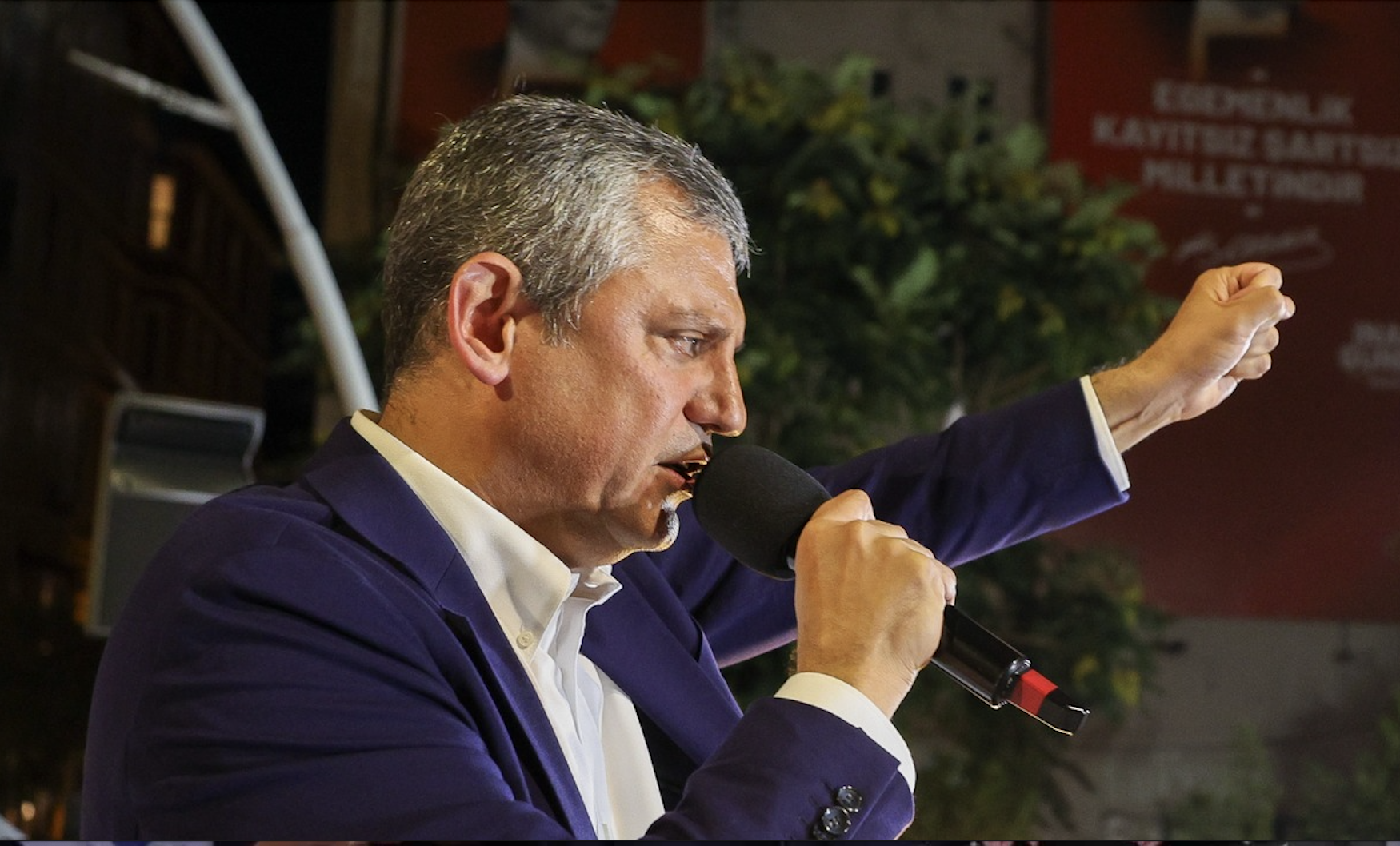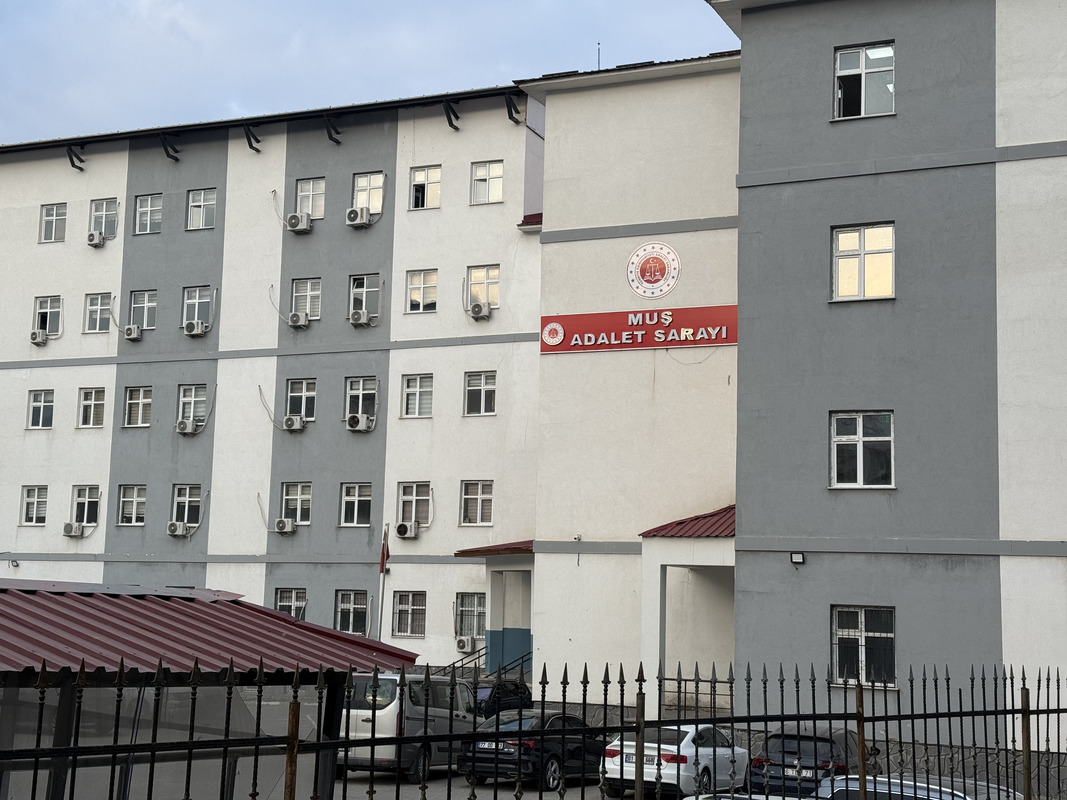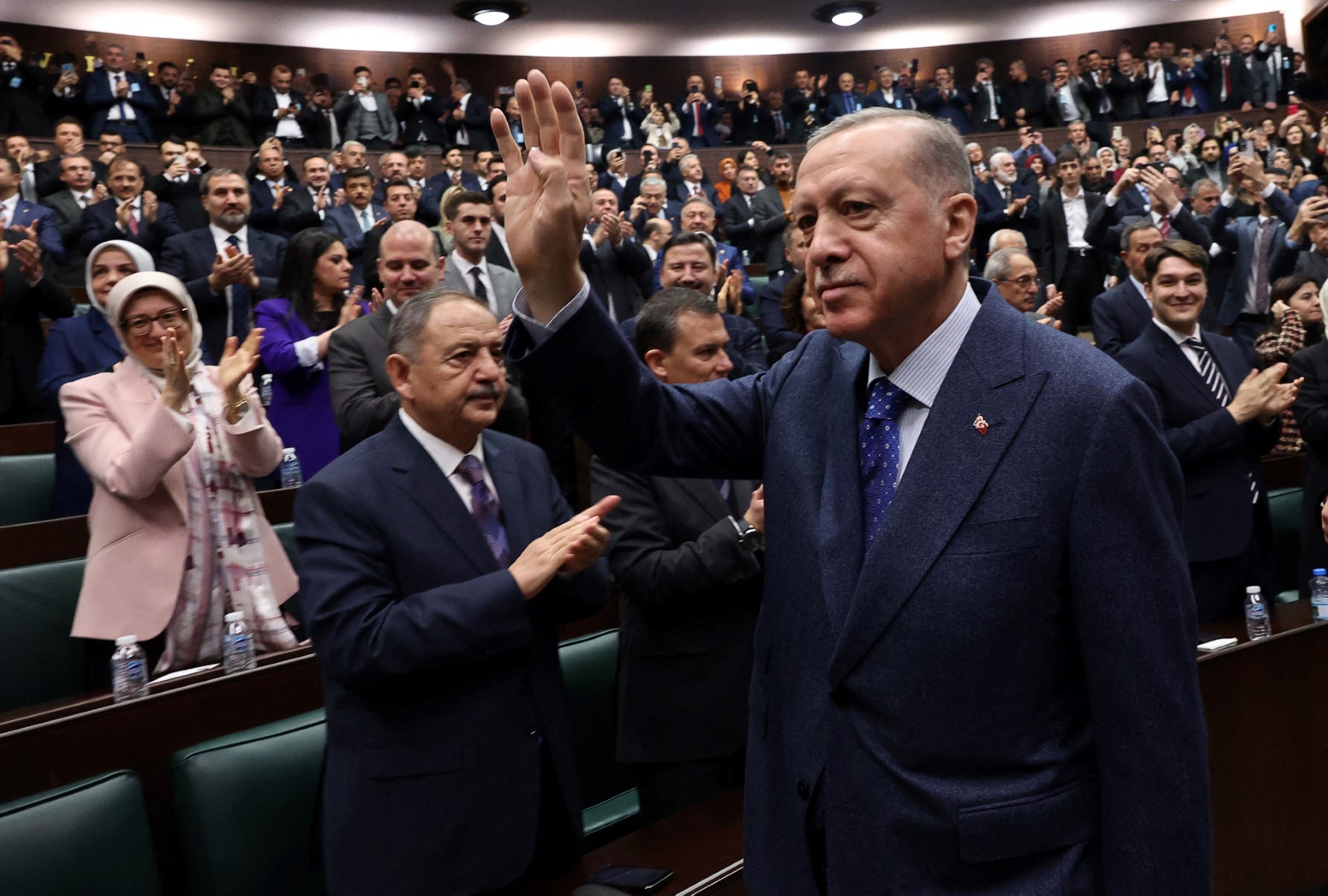Turkey’s crackdown on the CHP at the dawn of the “Peace Process”

Image Credit: Republican People’s Party, Turkey. Accessed September 20, 2025, from https://en.chp.org.tr/
Recent developments in Turkish politics—police operations against the main opposition Republican People’s Party (CHP) and the revival of a peace process with the Kurdistan Workers’ Party (PKK)—are increasingly seen across political circles as intertwined steps of a new regime-building project.
Since late 2024, the Turkish government has launched a series of nationwide operations targeting CHP-run municipalities. The campaign began in Esenyurt, Istanbul’s most heavily Kurdish-populated district, and escalated with the March 2025 arrest of metropolitan mayor Ekrem İmamoğlu. As of September 14, at least 19 municipalities have been targeted, and 17 CHP mayors have been detained or formally arrested in the ongoing crackdown.
The charges—ranging from terrorism links to corruption—are widely viewed as intended to delegitimize the CHP’s electoral cooperation with the pro-Kurdish Peoples’ Equality and Democracy (DEM) Party. This alliance, shaped by the DEM Party’s call for an “urban consensus” ahead of the 31 March 2024 local elections, enabled the CHP to secure first place in any election—local, parliamentary, or presidential—for the first time in 47 years, inflicting a heavy defeat on President Recep Tayyip Erdoğan’s government.
The AKP’s broad strategy against the opposition
Notably, the Esenyurt operation on 30 October 2024 came shortly after Devlet Bahçeli, leader of the Nationalist Movement Party (MHP) and Erdoğan’s ally in the ruling People’s Alliance, shook hands with DEM Party deputies in Parliament on 1 October, symbolically initiating the current Kurdish peace talks.
Meanwhile, the lawsuit over the 38th CHP Congress—alleging procedural irregularities and seeking annulment—continues. The charges over irregularities at the Congress—which ousted Kemal Kılıçdaroğlu in favor of the party’s new leader, Özgür Özel—were filed from within the CHP. Many interpret the recent developments as a broader strategy on the government’s part: to neutralize both the CHP’s leadership and its most popular figure, İmamoğlu, thereby preventing any credible electoral challenge to the AKP.
Political observers warn that these events illustrate more than an internal party dispute within the CHP. Speaking to The Amargi, Professor Mesut Yeğen1 notes: “There is no real internal tension or conflict within the CHP, as the media or the government partly tries to portray. Apart from a very small group of people seeking to seize control, the party remains united, and the government is attempting to exploit this through judicial means.”
For Sezgin Tanrıkulu, a CHP deputy and member of the newly-formed parliamentary National Solidarity, Brotherhood and Democracy Commission, the crackdown reflects a deeper shift2. “The government is becoming increasingly authoritarian, moving from an electoral autocracy to one with a controlled, token opposition,” Tanrıkulu told The Amargi. “The judiciary is being used to besiege the CHP because it is the only political force that can change power at the ballot box.”
The politician underlined the stark difference between AKP and CHP views inside the Commission. “The ruling party insists that Turkey has no democracy deficit and no Kurdish question—only a problem of terrorism and weapons,” he explained. “We in the CHP insist the opposite: Turkey faces a profound democracy problem, and the Kurdish issue is one of its core elements. Unless democratization and a Kurdish settlement advance together, no process can succeed.”
Although corruption charges have proliferated amid the operations, the AKP’s main objective appears to be the undermining of the CHP–DEM rapprochement. Under Özgür Özel, the CHP has so far avoided this trap, while the DEM Party has consistently denounced “attempts to shape politics judicially.” Based in the guerrilla-held Qandil mountains, Kurdistan Communities Union (KCK) leader Besê Hozat went further, declaring, “If there is fascism in Istanbul, there can be no democracy in Amed.”
Codifying the de facto regime
If the arrest and possible political ban of İmamoğlu marked the first peak of operations against the CHP, the outcome of the CHP Congress case, postponed throughout the summer until October 24, may constitute a second and, perhaps, final peak. One likely result is a weakened, dysfunctional CHP, unable to inspire trust or win votes.
Commentators describe this process as a coup, but it is more accurately the codification of an already existing process of politically and legally transforming a de facto regime into a de jure one, given that the government has seriously eroded numerous aspects of the 1982 Constitution, itself a product of a military coup d’état.
Since 2019, opposition parties have united around a desire to return to a “strengthened parliamentary system,” forming a broad alliance against Erdoğan’s hyper-centralized presidential rule. In this context, Turkey is at a turning point: one path points toward a return to a parliamentary system, while the other leads to the consolidation and formal codification of the existing de facto regime. To block the first path, the government seeks to destabilize the opposition, isolating the CHP and pressuring the DEM Party to distance itself.
The current “solution process”—framed as the “Democratic Society Process” by the Kurdish political movement and as “Turkey Without Terror” by the government—unfolds exactly at this turning point.
The Peace Process in the New Regime Vision
The Kurdish political movement has long formulated and presented a roadmap for a peaceful and democratic resolution. Yet, apart from the formation of the National Solidarity, Brotherhood, and Democracy Commission to oversee the potential peace process, the Turkish government has taken no concrete steps in the revived talks, now approaching their one-year mark.
Analysts broadly agree that the peace process functions less as a path to reconciliation than as a tool for Erdoğan to consolidate power, shape opposition dynamics, and control the Kurdish movement within a hierarchical, strategically managed framework. Some even debate the Kurdish role in the entire process—whether as unwitting, passive participants or as complicit partners—rendering the Kurds vulnerable to accusations of collaboration with the AKP.
However, leading Kurdish figures continue to maintain their demands and push their democratization agenda while recognizing the government’s intent. Pro-Kurdish analysts argue that such accusations should give way to approaches fostering solidarity and ownership of an alternative, just solution, since, as Veysi Sarısözen notes, “Resistance to this new regime project will fail without Kurdish experience and support.”
Yet, the debate quickly turns to assigning blame, often targeting Kurds in a disciplinary tone: “Most of the fault lies with you, dear brother.” This line in a poem by Nâzım Hikmet perfectly captures what many view as a Kemalist-secular nationalist mentality: a liberal defense of “democracy” that avoids the “leftist, religious, or pro-Kurdish” traps, yet offers no concrete proposals for building that “democracy”. To those opposing a defense of the old status quo, it is a legitimate question to ask what the restoration of a pre-AKP order would have to offer Turkey’s oppressed.
For Turkey’s ruling coalition, the crackdown on the CHP and the carefully managed peace process do not appear to be isolated matters, but rather deliberate instruments in a broader strategy to consolidate power and neutralize meaningful opposition. CHP deputy Sezgin Tanrıkulu warns, “You cannot pursue genuine peace while subjecting the main opposition to relentless repression. The AKP must choose: real peace and social reconciliation, or the continuation of violence as a political tool.” In a similar vein, Professor Mesut Yeğen highlights the government’s Achilles’ heel: “Even if the CHP is weakened or its leadership replaced, the public’s desire for change will not disappear. The government may suppress it temporarily, but it cannot eliminate it.”
- Mesut Yeğen has taught at Middle East Technical University (Ankara, Turkey) and Istanbul Şehir University. He is currently the editor of Kürt Tarihi (Kurdish History) magazine. His research focuses on nationalism, citizenship, and the Kurdish question. Yeğen is the author of several books, including Devlet Söyleminde Kürt Sorunu (The Kurdish Question in State Discourse), Müstakbel Türk’ten Sözde Vatandaşa: Cumhuriyet ve Kürtler (From Prospective Turk to So-Called Citizen: The Republic and the Kurds), Son Kürt İsyanı (The Last Kurdish Rebellion), İngiliz Belgelerinde Kürdistan (Kurdistan in British Documents), and Kürtler Ne İstiyor: Kürdistan’da Etnik Kimlik, Dindarlık, Sınıf ve Seçimler (What Do the Kurds Want? Ethnic Identity, Religiosity, Class and Elections in Kurdistan, co-authored with Uğraş Ulaş Tol and Mehmet Ali Çalışkan). ↩︎
- Conventionally translated as “brotherhood” in English, the Turkish word “kardeşlik” is gender neutral. ↩︎
Serap Gunes
Serap Güneş is a freelance translator and writer based in Istanbul. She holds a PhD in International Relations and European Politics from Masaryk University, where her research focused on minority rights and EU–Turkey relations. Her work has appeared in both academic journals and independent media outlets.



